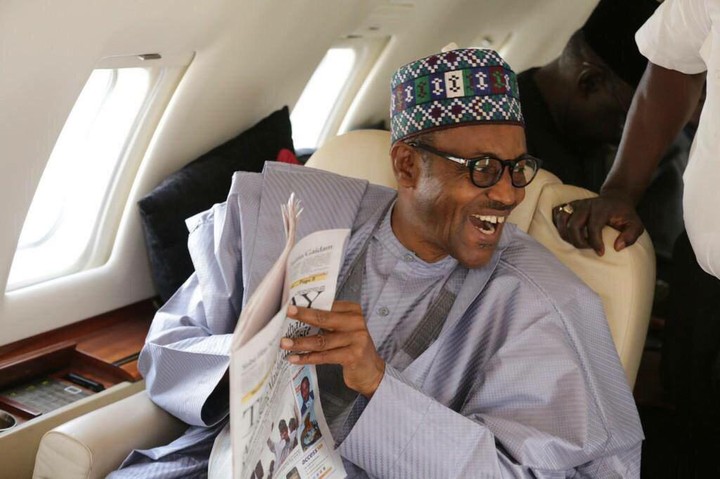The Peoples Democratic Party has called on President Muhammadu Buhari to leave office immediately.
But before quitting, the former ruling party asked the President to return the country to how he met it when he assumed office on May 29, 2015.
The spokesperson and a member of the party’s National Caretaker Committee, Prince Dayo Adeyeye, said this in a statement he signed in Abuja on Wednesday.
The former minister of state for works said his party was not happy with the state of affairs in the country.
He specifically mentioned the statement credited to the Minister of Finance, Mrs. Kemi Adeosun, that, “recession is a word.”
Adeyeye said, “Is this statement as a result of ignorance, lack of patriotism or in-line with President Buhari’s comment that his ministers are noise makers?
“For the record, recession is characterised as a period of negative economic growth for two consecutive quarters, given rise to high rate of unemployment, fall in output, increase in government borrowing, etc.
“Following this understanding, Nigeria’s economy is already near depression. The crass ineptitude and lukewarm-attitude of this All Progressives Congress government is no longer tolerable, and therefore, we are calling on President Buhari and his team to return Nigeria to its state of booming economy before they assumed office in May, 2015, and then quit immediately to allow other capable leaders revive our ailing economy.”
Adeyeye said about three airlines, local and international, and some banks had allegedly suspended operations and sent their members of staff on an indefinite leave due to the poor state of Nigeria’s economy.
He said Nigerians were aware that the PDP government invested heavily in most of the nation’s airports, an action he said resulted to alleged ‘facelift’ and improved operations through remodelling, construction of new airports, refurbishing and equipping of the local and international airports to meet the best practices in the aviation industry.
He said the APC’s administration had frittered away all the good policies and programmes which he claimed the PDP put in place, thereby bringing down the aviation sector in the country amongst other catastrophes he said the new leadership had caused.
He said the President should sit down to work instead of constantly blaming past governments at all time.
He said, “What Nigerians want from this administration are positive results and not resorting to throwing tantrums on the PDP at every given opportunity.
“Our call for the President to return the country to how he met it in 2015 is justified on the following grounds.
“In 2015 when the President came to power, a bag of rice was selling at N7,000, but now, it is above N20,000; a ‘mudu’ of beans was N150 then and now, it is N500; one US dollar was then trading for N197 but now it is over N400.
“Also, a litre of fuel was N87 but now is N145; cost of transportation and other services had skyrocketed. Given our observations since the inception of this government, they have nothing to offer and as such, quitting will be a solution because nobody can give what he/she does not have. The APC has failed.”
Adeyeye called on Nigerians to recall President Buhari’s purported “body language” at the beginning of his administration and reiterated that governance “is a serious business and not about someone’s body language’ and de-marketing strategies of Mr. President while ‘globetrotting’.
“When this government came to power in May 2015 riding on the achievements of the previous PDP administration, President Buhari’s handlers and his party, the APC, claimed it was his ‘body language’ that brought some positive changes the country was witnessing at that time.
“So, we want to know what are the results of the so-called ‘body language’?”
He concluded that the earlier the President and his team quit, the better for the country, saying “there is no better time than now to make this call for the President to return the country to how he met it and quit.
“He can even quit right away for a more experienced team to take over.”
Adeyeye appealed to members of his party and other well-meaning Nigerians to keep praying to God to intervene so that the country could quickly recover from the ailing economy.
The Director-General of the Voice of Nigeria, Mr. Osita Okechukwu, who was until his appointment, the South-East Zonal spokesman for the APC, has dismissed the PDP’s call for Buhari’s resignation.
Okechukwu said the PDP was simply trying to make Nigerians forget the 16 years of its maladministration.
He said, “On May 13, 2010, the Jonathan administration announced the contract award of three refineries which he called the greenfield refinery. One was to be located in Bayelsa, one in Kogi and one in Lagos, if those refineries were constructed, the billions of naira we are losing through vandalism of our pipelines would not be the order of the day.
“If his wife, Patience, was wise enough to use the money she used to build a hotel in Yenagoa for the refinery, we wouldn’t have been where we are today.
“The Nigerian people know where the rain started beating us. As the Petroleum Task Force chairman, Buhari, with the meagre resources at his disposal, was able to build more kilometres of roads than the PDP did in 16 years, even though they had more money.
“Are they saying Nigeria should return to the years where Boko Haram held all of us to ransom and the looting of the public treasury was the order of the day?”


 Forex3 weeks ago
Forex3 weeks ago


 Naira2 weeks ago
Naira2 weeks ago
 Billionaire Watch2 weeks ago
Billionaire Watch2 weeks ago




 Naira2 weeks ago
Naira2 weeks ago




 Naira2 weeks ago
Naira2 weeks ago




 Naira4 weeks ago
Naira4 weeks ago


 Naira7 days ago
Naira7 days ago
 Banking Sector4 weeks ago
Banking Sector4 weeks ago





















